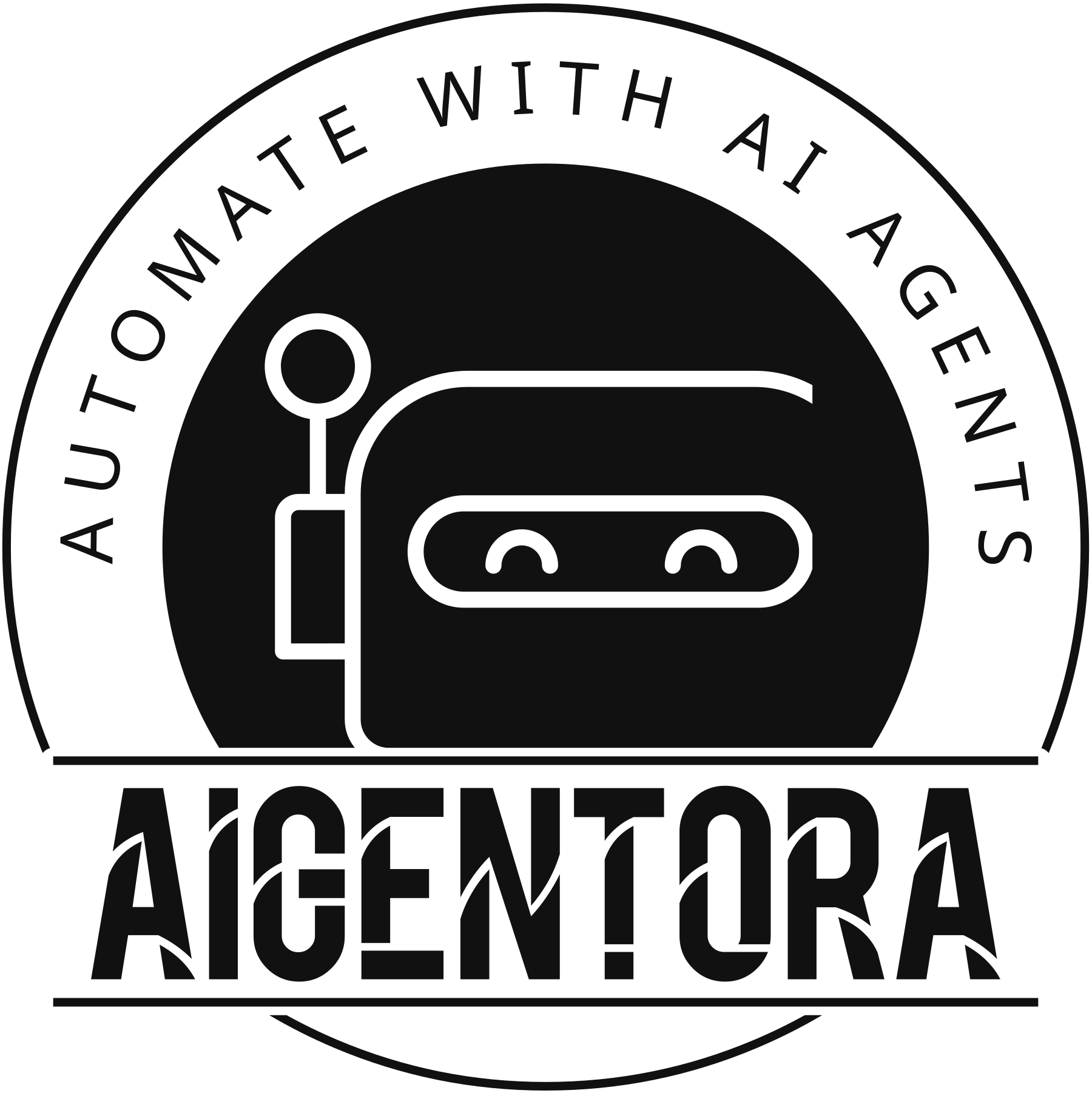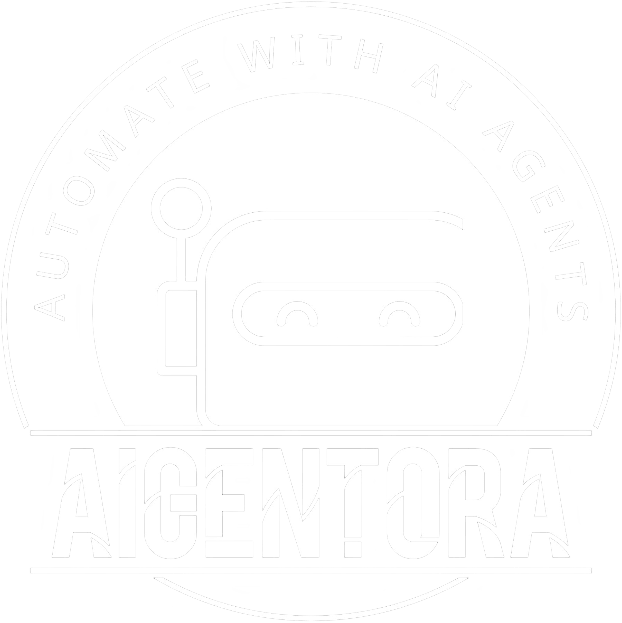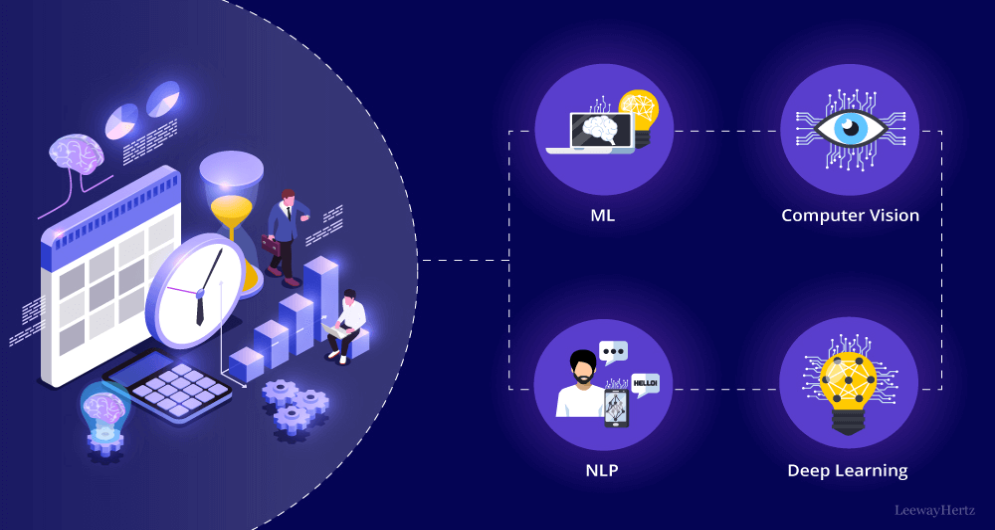In today’s fast-paced business environment, employees spend a large portion of their time on repetitive, rule-based tasks. These tasks, while essential, often reduce productivity, increase errors, and prevent teams from focusing on strategic initiatives.
AI agents are intelligent software systems designed to automate these repetitive tasks. By learning from patterns, processing data, and executing actions autonomously, AI agents streamline workflows, enhance accuracy, and allow employees to focus on high-value work.
This guide explores how AI agents work, their advantages, challenges, common use cases, and steps to implement them effectively in your business.
✨ What Are AI Agents?
AI agents are autonomous software systems capable of perceiving their environment, making decisions, and executing tasks without constant human intervention. Unlike traditional automation scripts, AI agents learn and adapt, improving over time to handle complex workflows efficiently.
Key Capabilities:
Automating structured and repetitive workflows
Understanding and processing natural language (emails, chats, documents)
Integrating with existing business tools (CRM, ERP, communication platforms)
Learning from data to optimize task performance
✨ How AI Agents Automate Repetitive Tasks
AI agents are designed to handle routine, repetitive, and time-consuming tasks that would otherwise consume significant human effort. By leveraging intelligent algorithms, these agents can interpret data, make decisions, and execute actions automatically, reducing errors and freeing employees for higher-value work.
From data entry and customer support to reporting and workflow management, AI agents integrate seamlessly into existing business processes. They learn from patterns, adapt to changes, and operate consistently around the clock, ensuring that repetitive tasks are completed efficiently, accurately, and without fatigue. Businesses can achieve faster turnaround times, improved productivity, and enhanced operational consistency through AI-driven automation.
Common Repetitive Tasks Automated by AI Agents
| Task Type | Examples | Benefits |
|---|---|---|
| Data Entry & Management | Updating records, removing duplicates | Saves time, reduces human error |
| Scheduling & Reminders | Meetings, follow-ups, recurring tasks | Ensures consistency, prevents missed deadlines |
| Customer Support | FAQs, ticket routing, basic troubleshooting | Faster response, improved customer satisfaction |
| Document Processing | Invoice approvals, contract validation | Reduces errors, accelerates workflows |
| Reporting & Analytics | Dashboards, performance reports | Provides real-time insights, saves manual effort |
| Marketing Automation | Social media posts, email campaigns | Ensures timely engagement, reduces workload |
| HR & Recruitment | Resume screening, onboarding steps | Streamlines recruitment, improves employee experience |
Key Advantages of AI Agents
Time Savings & Productivity Boost
AI agents automate routine processes, freeing employees to focus on high-value work and strategic initiatives.Accuracy & Reduced Errors
Machines execute repetitive tasks consistently, minimizing human mistakes in data entry, reporting, or compliance processes.Scalability & Flexibility
AI agents can handle growing workloads without proportional increases in staff, enabling businesses to scale efficiently.Enhanced Decision-Making
Agents can analyze patterns and provide insights in real-time, supporting faster and more informed business decisions.Employee Satisfaction
By removing monotonous tasks, AI agents empower employees to work on creative, problem-solving, and impactful projects.
Challenges of Implementing AI Agents
Complex Workflows: Some processes require human judgment for exceptions.
Data Quality: Poor data can reduce automation accuracy; preprocessing is essential.
Integration Complexity: Connecting agents with legacy systems can be challenging.
Change Management: Employees may resist automation due to fear of job loss.
Security & Compliance: Sensitive data handled by AI agents requires strict security measures.
Use Cases Across Industries
| Industry / Scenario | Ideal AI Agent | Why? |
|---|---|---|
| Finance & Accounting | Invoice & report automation | Reduces manual data entry and ensures accuracy |
| Customer Support | Chatbots & ticket triage | Handles FAQs instantly, routes complex issues to humans |
| HR & Recruitment | Resume screening & onboarding | Speeds up recruitment and improves employee experience |
| Marketing & Sales | Lead scoring & campaign automation | Ensures timely engagement and personalized messaging |
| Manufacturing | Quality checks & workflow tracking | Detects anomalies in real-time, reduces production errors |
| Retail | Inventory updates & order management | Automates repetitive stock management tasks |
Best Practices to Implement AI Agents
Identify Repetitive Tasks – List workflows that are time-consuming and rule-based.
Prioritize for Impact – Focus on tasks where automation yields the highest ROI.
Choose the Right AI Agent – Rule-based vs learning agents depending on complexity.
Pilot Small, Scale Gradually – Start with one department, measure performance, expand.
Monitor & Optimize – Continuously refine agent performance with feedback and data.
Why Partner with Aigentora
At Aigentora, we design custom AI agents that integrate seamlessly into your business workflows. Our solutions:
Reduce operational costs and save employee time
Ensure security, compliance, and data privacy
Scale efficiently with growing business needs
Provide actionable insights for smarter decision-making
Conclusion
Repetitive tasks no longer need to drain time, energy, and resources. With AI agents, businesses can boost efficiency, reduce errors, and empower employees to focus on innovation.
Partner with Aigentora to implement AI agents tailored to your business and unlock the full potential of intelligent automation.
🧠 Frequently Asked Questions
AI agents automate rule-based and repetitive workflows such as data entry, scheduling, customer support, and reporting. By executing these tasks consistently and accurately, they free employees to focus on strategic and creative work, increasing overall productivity and efficiency.
AI agents are ideal for tasks that are repetitive, predictable, and time-consuming. Examples include invoice processing, email sorting, report generation, lead scoring, social media posting, and employee onboarding processes, all of which benefit from reduced human error.
AI agents perform tasks according to predefined rules or learned patterns, eliminating human errors like typos, miscalculations, or missed steps. With continuous learning, they adapt over time, ensuring workflows are executed with greater precision and consistency.
Yes, AI agents can integrate with tools like CRM platforms, ERP systems, communication software, and marketing automation tools. This seamless integration allows businesses to automate workflows across multiple departments without disrupting existing processes.
Industries with high volumes of repetitive tasks, such as finance, HR, marketing, customer support, retail, and manufacturing, see the greatest impact. AI agents streamline processes, reduce operational costs, and improve responsiveness across these sectors.
By removing repetitive and time-consuming tasks, AI agents free employees to focus on high-value work such as strategic planning, decision-making, and innovation. This not only boosts productivity but also improves job satisfaction and engagement.
Absolutely. AI agents can scale according to business size and needs. SMBs can start with automating a few high-impact workflows, reduce operational overhead, and gradually expand AI adoption as their processes grow more complex.
Challenges include integrating with legacy systems, ensuring data quality, handling exceptions that require human judgment, managing change resistance among employees, and maintaining strict security and compliance standards.
Businesses can track metrics such as time saved, reduction in errors, improved turnaround times, employee satisfaction, cost savings, and increased output. Measuring these KPIs helps assess the efficiency gains and overall impact of AI agent automation.






